By Cam Delisle
In the wake of her breakthrough third album, Through The Wall, the experimental-R&B auteur reflects on a career-defining year.
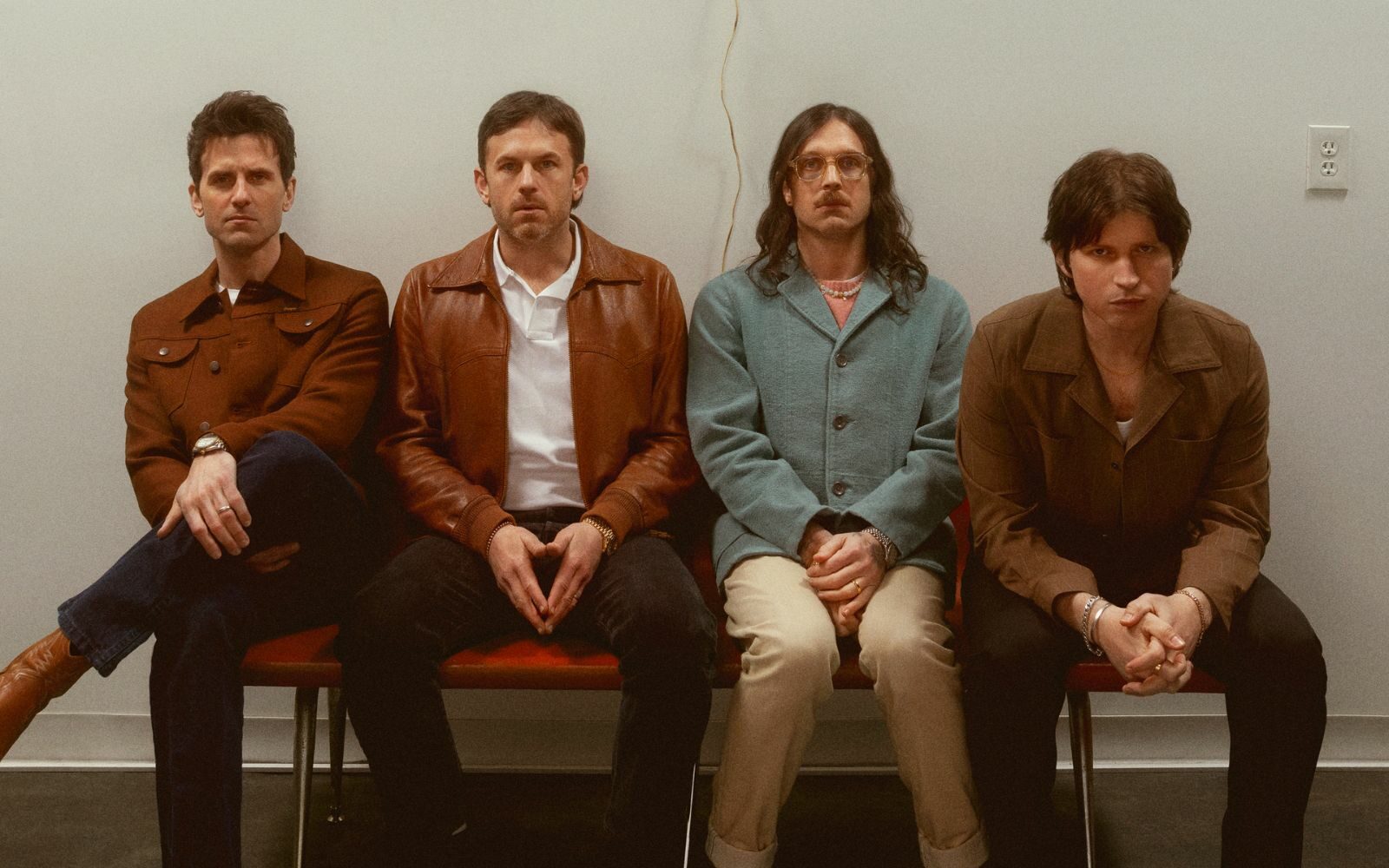
In their 25-year musical career, Kings of Leon have learned a lot about what works for them and what doesn’t, including the best way to make a record. Given that they’re family, this is not the simplest feat. The American rock band, formed in Nashville, Tennessee in 1999, is comprised of brothers Caleb, Nathan and Jared Followill and their cousin Matthew Followill.
The brothers had a conservative childhood, traveling throughout Oklahoma and the Deep South so their father could offer his services as a United Pentecostal Church preacher. It wasn’t until 1997 that that the oldest of them, Nathan and Caleb, stepped out of their sheltered lives to live near Nashville and pursue music – first country, then alt-folk and rock as their musical horizons inevitably expanded with exposure to bands like the Rolling Stones, Led Zeppelin and the Clash.
Two years later they recruited Jared, 13 at the time, and pseudo-kidnapped Matthew, then 15, explaining in later interviews that his mom had thought he was only visiting for the week. Instead, they became inseparable, officially dubbing themselves Kings of Leon, named in honour of their grandfather who passed away in 2014. RCA Records entered the picture in the early 2000s, and expressed interest in signing Nathan and Jared alone, wanting to put together a band for them, but the brothers insisted they keep the music in the family.
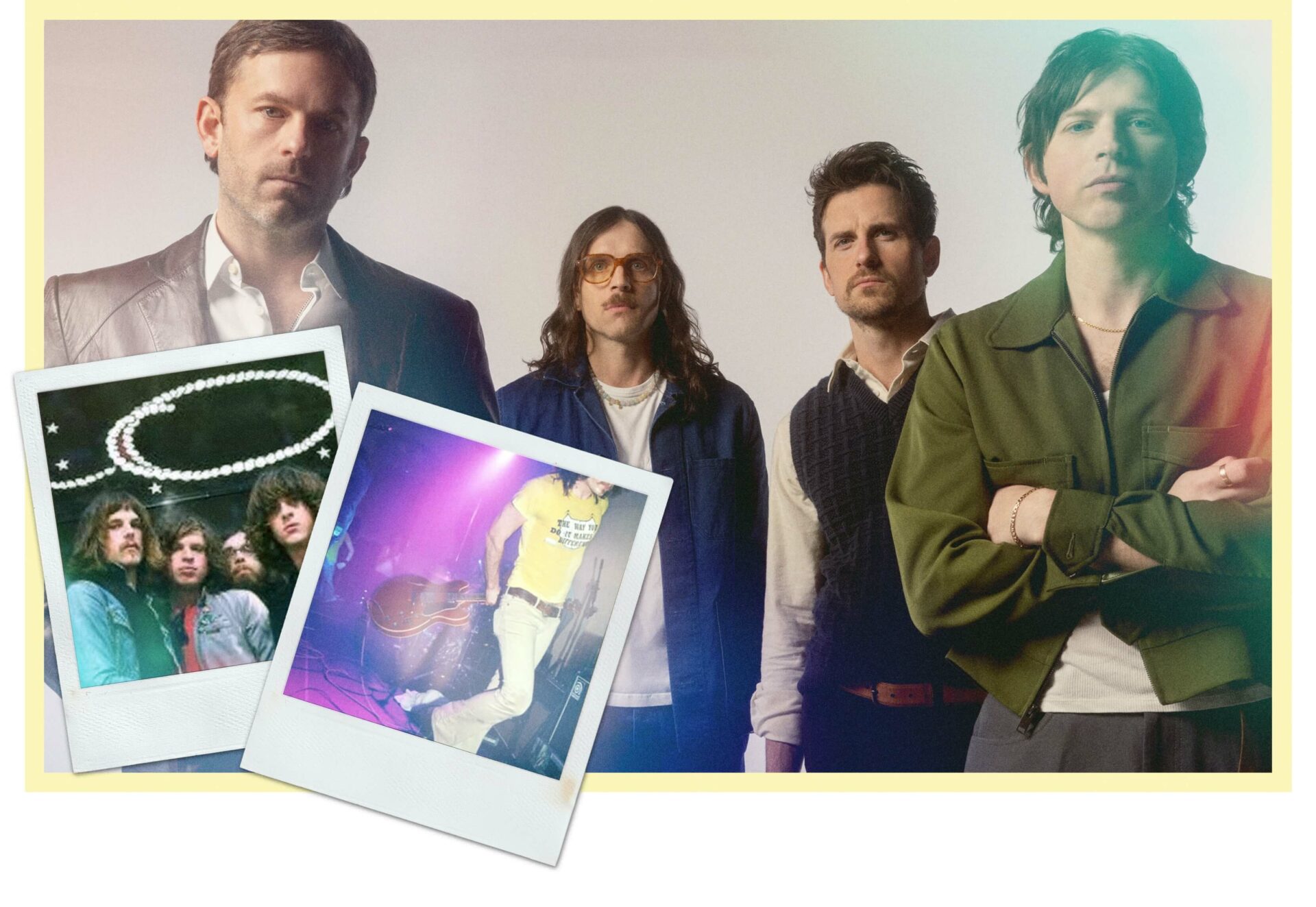
Caleb took the position of front man as guitar and vocals, Nathan played drums, Jared learned to play bass, and Matthew accompanied on guitar, leading up to the debut of their first EP, Holy Roller Novocaine, in 2003. Since then, they’ve released eight albums with RCA Records, won three Grammy Awards, three NME Awards, two Brit Awards and one Juno, and toured all over the world.
The band grew widely popular with the breakthrough of their 2008 album Only by the Night, which featured singles “Sex on Fire” and “Use Somebody.” Subsequent albums delivered a more manufactured sound, leaving early fans worried that they had left their rugged origins behind them for good. Fortunately, it turns out the guys have their own nostalgia for that time.
Their new album, Can We Please Have Fun, is in essence a documentation of the band returning to their creative origins – experimenting, and rediscovering the joy of making music. Monumentally, it’s Kings of Leon’s first album to not be released on their original label, RCA Records.
In fact, when they started writing the songs, they were still between labels, absolved from the contractual obligation of churning out new work on a deadline. “We just did this one because we wanted to, it was ours,” says Jared. “And that felt like the early days when we didn’t necessarily expect to have a contract forever.”
“Before we had any success, it was all so new to us and so fun and everything we did, we were coming out of a world that was somewhat sheltered,” he later adds. “We just had no pressure.”
The conception of the new album began organically when Caleb said he had a few ideas for songs that he wanted to share with the rest of the band. They’d just sold their old studio and were in the process of buying a new one, so there wasn’t an obvious place that they could go to be creative. Then Caleb found himself driving on a dirt road in Franklin, Tennessee, 34 km south of Nashville, and something about it felt right. He decided to book out a cottage and invited the band to meet him there.
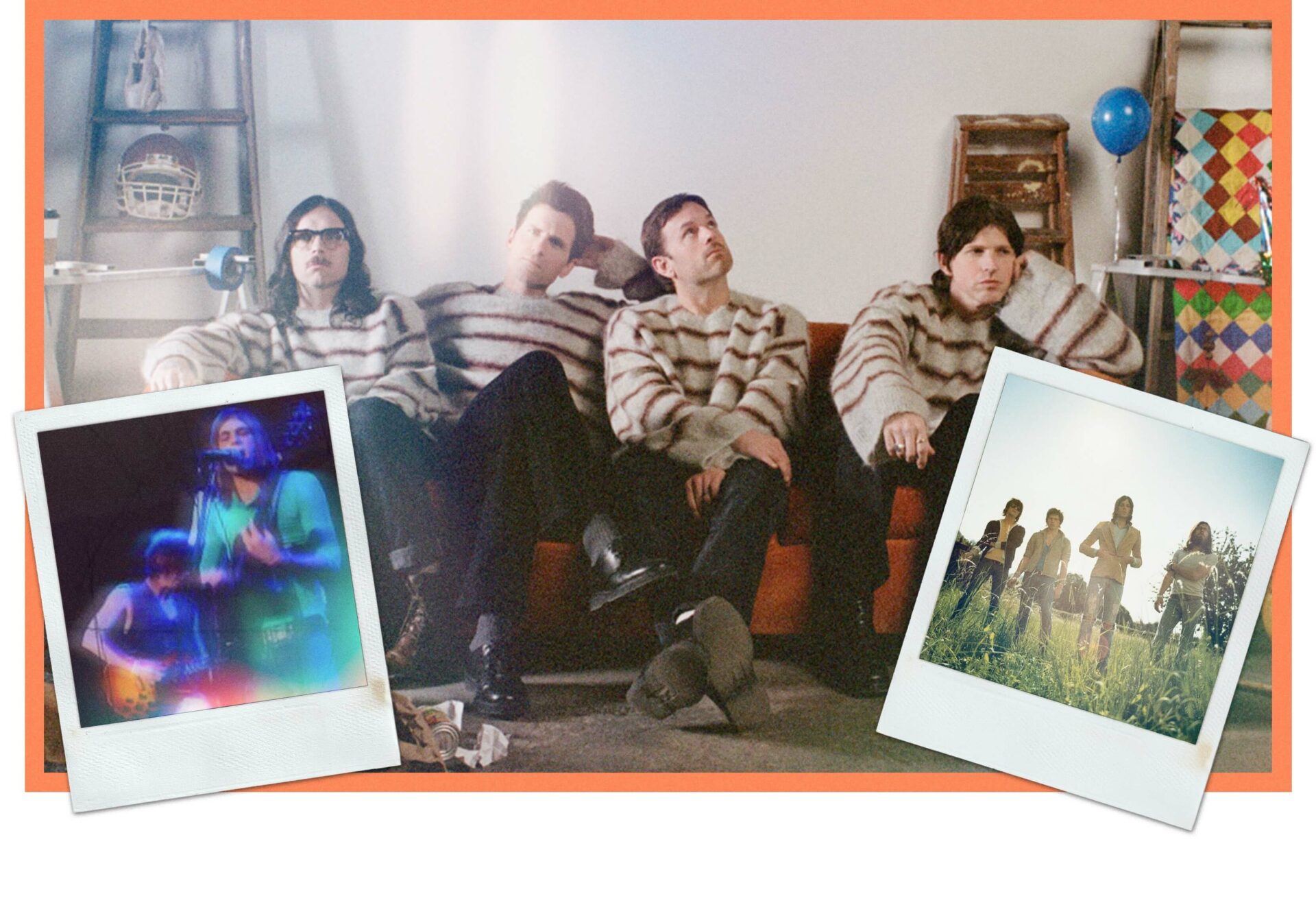
“Nashville in the winter is not the most inspiring unless you let it be; it’s kind of dark and gloomy and low fog,” muses Caleb. “But there was something about just being in that cozy cottage environment.” So they set up all their gear and holed up for a month.
The property had two structures, one of which was actually intended as a studio, but the guys didn’t feel compelled to use it right away. Instead, it called to them. “As we were writing in the cottage,” explains Caleb, “a lot of lyrics kept coming up and they were referring to that big wooden structure. So we went and checked it out one day and when we walked in, we all just kind of looked around and said ‘Yeah, this is where the album has to be made.’”
A similar guiding force is present in the album itself, which feels like a dreamy, escapist commentary on the state of the world, met by a plea for temporary relief. “We allowed ourselves to be musically vulnerable,” Nathan shared in a press release. There’s a shared sense of freedom and enjoyment that is felt through the many varied yet cohesive moments of the album – at times ethereal and melodic and at others imbued with high-octane post-punk grooves.
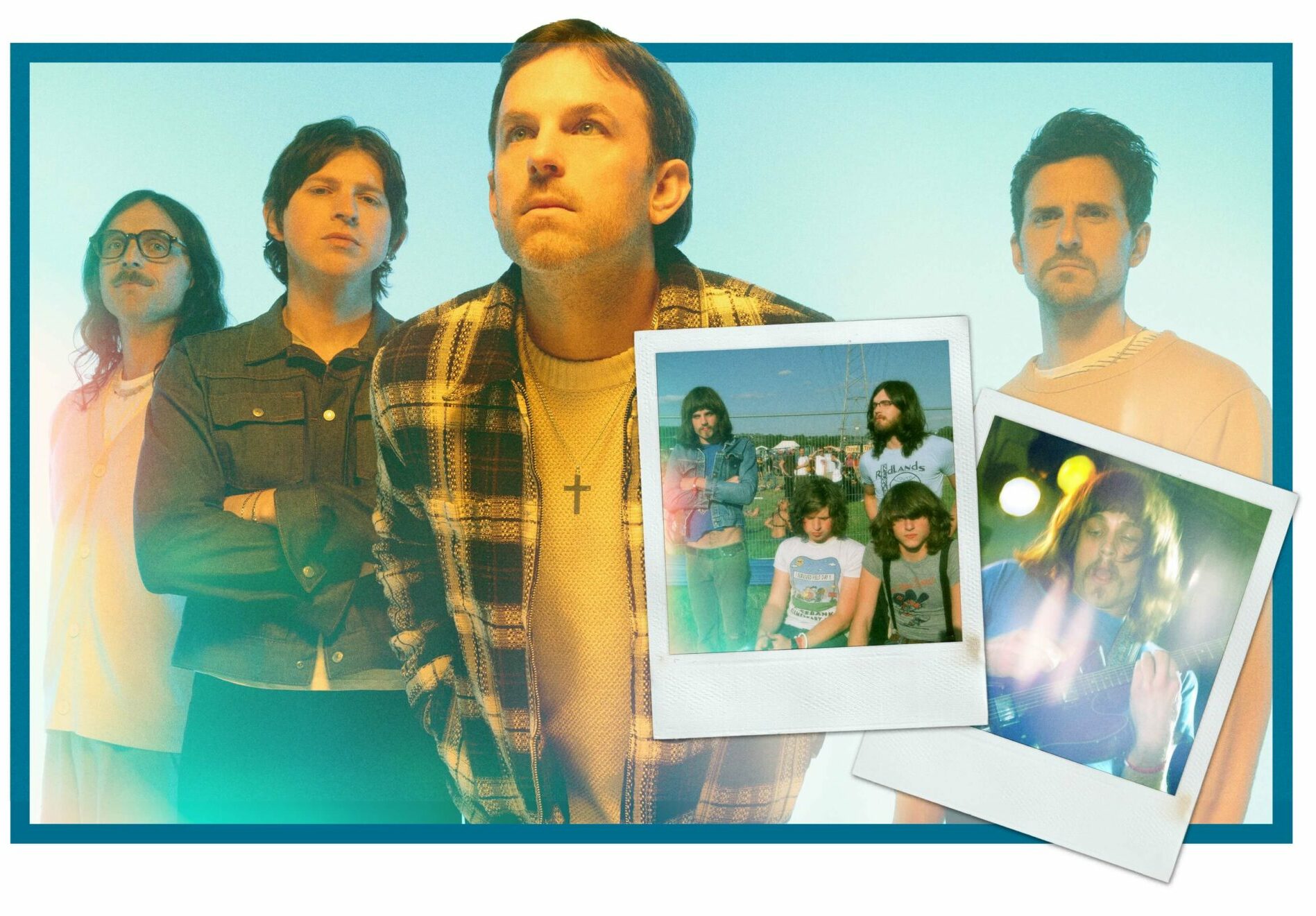
“I do feel like there was a period making this record that I was just a messenger and stuff was just flowing through me and flowing through us,” Caleb says. “I’ve never felt so in tune with something, and so at the service of something bigger than me. And I don’t necessarily know that that is what people will hear, but for a minute there I did feel like we were some of the most inspired people in the world.”
The title phrase “Can we please have fun?” was, at first, just one line amongst others that Caleb had jotted on a piece of paper. But Jared says it jumped out right away. At a time in the world when tragedy is widespread, it’s a relatable sentiment to wish for a moment of reprieve. “Even if it’s for a day or an hour,” Jared says.
For Caleb, it’s also a matter of creating something pure and from the heart. “Can we please have fun, can we not get in our own way? Can we not let the outside noise or past successes or failures or any of that come into play?” he elaborates. “And can we just go in there and use our inspiration, our experience, enjoy the process and have fun making music?”
These self imposed questions perhaps best contextualize the full-circle place that the band finds themselves in today: excited to create, and largely unconcerned with the politics of the music industry, just as they had been when they were completely new to it. “As far as creativity and the things that we can control, I’ve never felt more competent and more comfortable,” Caleb says. “Let’s take advantage of this opportunity and go make music that means something to us. Because if it means something to us, I have a feeling it’s gonna mean something to someone else.”
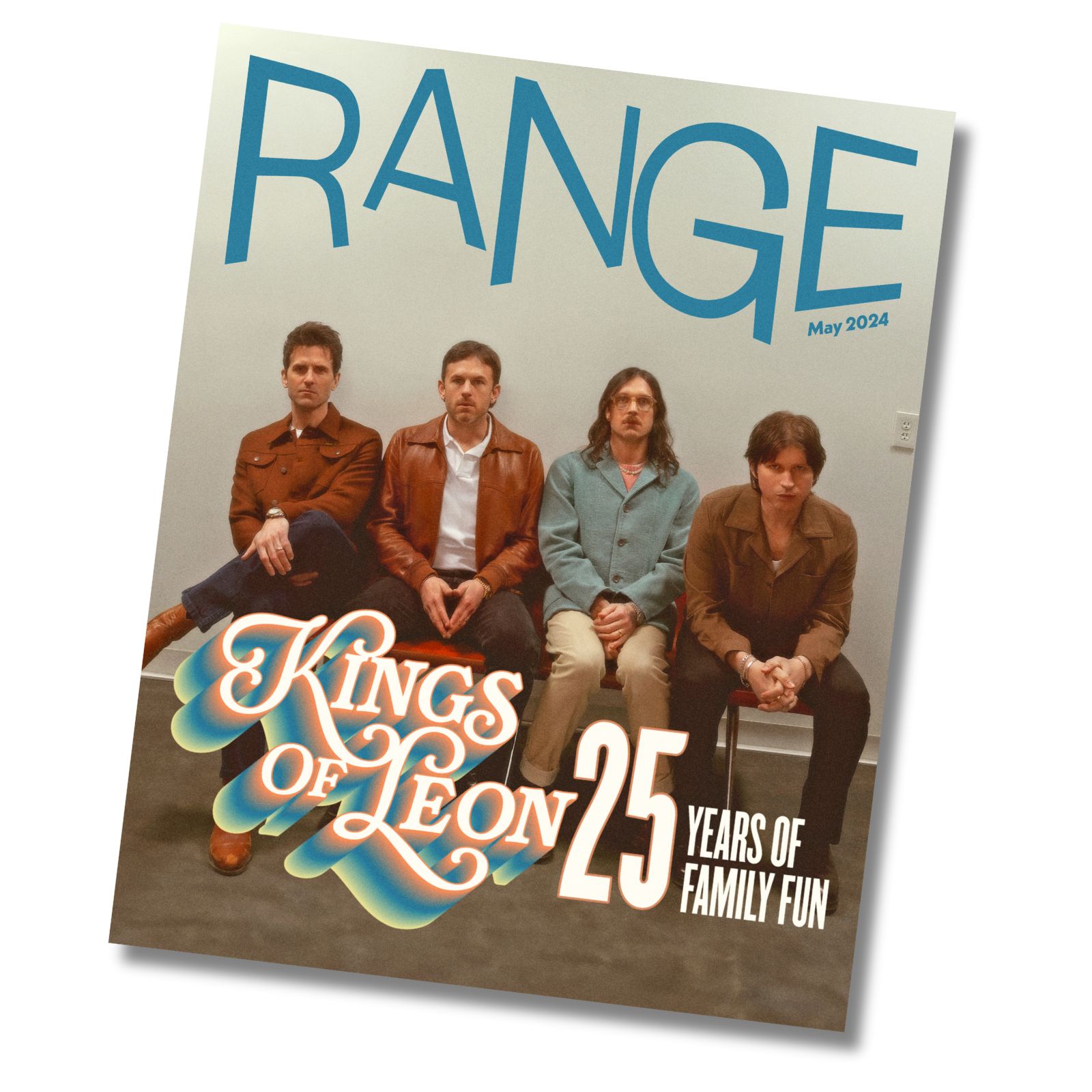
By Cam Delisle
In the wake of her breakthrough third album, Through The Wall, the experimental-R&B auteur reflects on a career-defining year.
By John Divney
Still processing their debut album, Vancouver’s latest art-rock unit proves collaboration is the new rebellion.
By Cam Delisle
The elusive Kevin Parker soundtracks the self-medicated search for bliss on his fifth album, Deadbeat.